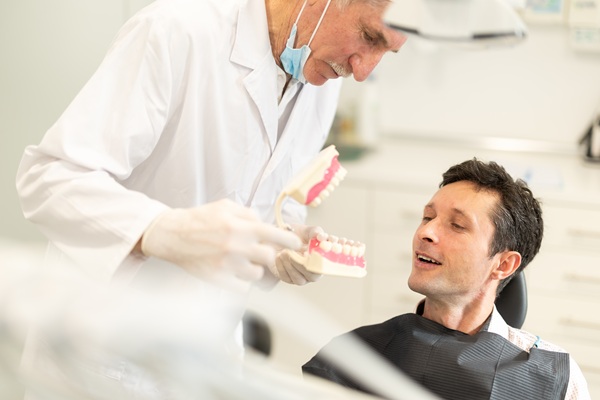Your Questions About Professional Dental Teeth Cleaning Answered

Teeth cleanings are an important part of maintaining good oral health because they ensure the removal of plaque and tartar, both of which can lead to serious damage to the gums and teeth. Thankfully, general dentistry services include routine teeth cleanings twice a year or more frequently, depending on preference and needs.
Questions and answers about teeth cleanings in general dentistry
When considering a regular teeth cleaning, it can be helpful to review the following information, which outlines answers to common questions on the subject.
1. How often should individuals undergo a teeth cleaning?
General dentists recommend that individuals of all ages undergo a teeth cleaning twice a year or every six months. However, there are certain scenarios in which teeth cleanings should be undergone more frequently. Individuals who are at a high risk of developing gum disease or cavities may be recommended to get teeth cleanings every three months or four times a year. Additionally, those with braces may be advised to get a teeth cleaning every other month, as their teeth and gums are harder to reach during oral hygiene.
2. Does a teeth cleaning hurt?
There should not be any pain during or after a teeth cleaning. However, some individuals experience slight sensitivity, which is completely normal. If sensitivity lasts more than 24 hours, it is best to use a special mouthwash or toothpaste.
3. Is there anything special to do after a teeth cleaning?
There is not any special to do after a teeth cleaning appointment. It is recommended to avoid eating or drinking for 30 minutes, but outside of that, individuals are free to do as they please. If any sensitivity is experienced, then it may be best to avoid hot or cold foods and beverages for a day or so until the sensation subsides.
4. What happens during a teeth cleaning appointment?
During a teeth cleaning, individuals can expect to have their teeth flossed, brushed and polished. The hygienist will use professional dental instruments and strong products to thoroughly clean the teeth. Some teeth cleaning appointments will also include X-rays, an examination and fluoride application, all of which encourage good oral health.
5. Will cavities form without a teeth cleaning?
While at-home oral hygiene can keep the teeth in good shape, it does take the expertise of a general dentist in order to properly remove all plaque and tartar. If routine teeth cleanings are not maintained, then the teeth become extra prone to plaque buildup, which can lead to the development of cavities. Plaque and tartar tend to live along the gumlines, and when they are not removed on a regular basis, the gums can become infected.
Get started with a teeth cleaning
Regardless of age, it is necessary to undergo a teeth cleaning at least twice a year or every six months. To get started with an appointment or to learn more, reach out today!
Request an appointment here: https://www.yourhuntsvilledentist.com or call René A. Talbot, DDS at (256) 382-6690 for an appointment in our Huntsville office.
Check out what others are saying about our services on Yelp: Read our Yelp reviews.
Recent Posts
Choosing the best dentist is essential for maintaining your oral health. However, finding the right dentist for you can feel overwhelming with so many options available. Fortunately, by considering a few key factors and gathering some key information, you can identify a trustworthy dental professional who meets your needs.Convenience plays a significant role in choosing…
Endodontics treatment, which is the treatment of the tooth's inner pulp and structures, is one of the most efficient ways to save decaying or damaged teeth. Many individuals, however, get anxious when they learn they need it. This is mostly due to the widespread misconception that undergoing endodontic treatment is unpleasant. It is incorrect —…
Patients often search for root canal treatment when a tooth aches from deep decay, a crack, or inflamed pulp tissue. This therapy removes irritated nerve tissue, disinfects the canal space, and seals the tooth to prevent reinfection. By preserving the natural root, the procedure maintains bite balance and chewing strength. With careful planning, a restored…
Looking for information on periodontic care? Continue reading to learn about situations when a dentist might recommend periodontics. Periodontal disease, commonly known as gum disease, is a serious oral health issue that can result in severe oral infections and tooth loss. Periodontal disease may be contained and handled with the appropriate professional treatment.Gum disease can…


